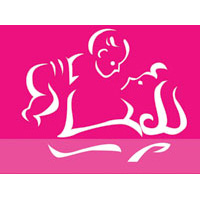May 13 is Mother’s day
 Enjoy these quotes from our scriptures and distinguisthed leaders in honor of Mother’s Day.
Enjoy these quotes from our scriptures and distinguisthed leaders in honor of Mother’s Day.
The woman who always does good, who is efficient in work, sweet in speech, devoted to her duty and service of her husband, is really no human being but a goddess.
Manu Smriti
Women are the great conservators of our culture. They adhere to the household ritual, cradle song and popular poetry. A definite philosophy of life is bound up with these. By the very quality of their being, women are the missionaries of civilization. With their immense capacity for self-sacrifice they are the unquestioned leaders in Ahimsa.
S. Radhakrishnan (Then Vice-President of India, 1953)
Where women are honored, there the gods are pleased, but where they are not honored, there no sacred rite is fruitful.
Manu Smriti
Matru Devo Bhava (Let thy mother be thy God).
The Sruti (Taittiriya Upanishad)
The position of women in any society is a true index of its cultural and spiritual level.
S. Radhakrishnan, (Vice-President of India, 1953)
 The mother is the panacea for all kinds of calamities. The existence of the mother invests one with protection; the reverse deprives one of all protection. The man who, though divested of prosperity enters his house, uttering the words, “O mother!”- has not to indulge in grief. Nor does decrepitude ever assail him. A person whose mother exists, even if he happens to be possessed of sons and grandsons and even he himself is hundred years old, but in the eyes of his mother he looks like a child of two years of age. Whether the mother is able or disabled, lean or robust, the son is always protected by the mother. None else, according to the ordinance, is the son’s protector. Then does the son become old, then does he become stricken with grief, then does the world look empty in his eyes, when he becomes deprived of his mother. There is no shelter like the mother. There is no refuge like the mother. There is no defense like the mother. There is no one as dear as the mother. For having borne him in her womb the mother is the son’s dhatri. For having been the chief cause of his birth, she is his janani. For having nursed his young limbs, she is called amva (Amma). For nursing and looking after the son she is called sura. The mother is one’s own body.
The mother is the panacea for all kinds of calamities. The existence of the mother invests one with protection; the reverse deprives one of all protection. The man who, though divested of prosperity enters his house, uttering the words, “O mother!”- has not to indulge in grief. Nor does decrepitude ever assail him. A person whose mother exists, even if he happens to be possessed of sons and grandsons and even he himself is hundred years old, but in the eyes of his mother he looks like a child of two years of age. Whether the mother is able or disabled, lean or robust, the son is always protected by the mother. None else, according to the ordinance, is the son’s protector. Then does the son become old, then does he become stricken with grief, then does the world look empty in his eyes, when he becomes deprived of his mother. There is no shelter like the mother. There is no refuge like the mother. There is no defense like the mother. There is no one as dear as the mother. For having borne him in her womb the mother is the son’s dhatri. For having been the chief cause of his birth, she is his janani. For having nursed his young limbs, she is called amva (Amma). For nursing and looking after the son she is called sura. The mother is one’s own body.
From the Mahabharata































